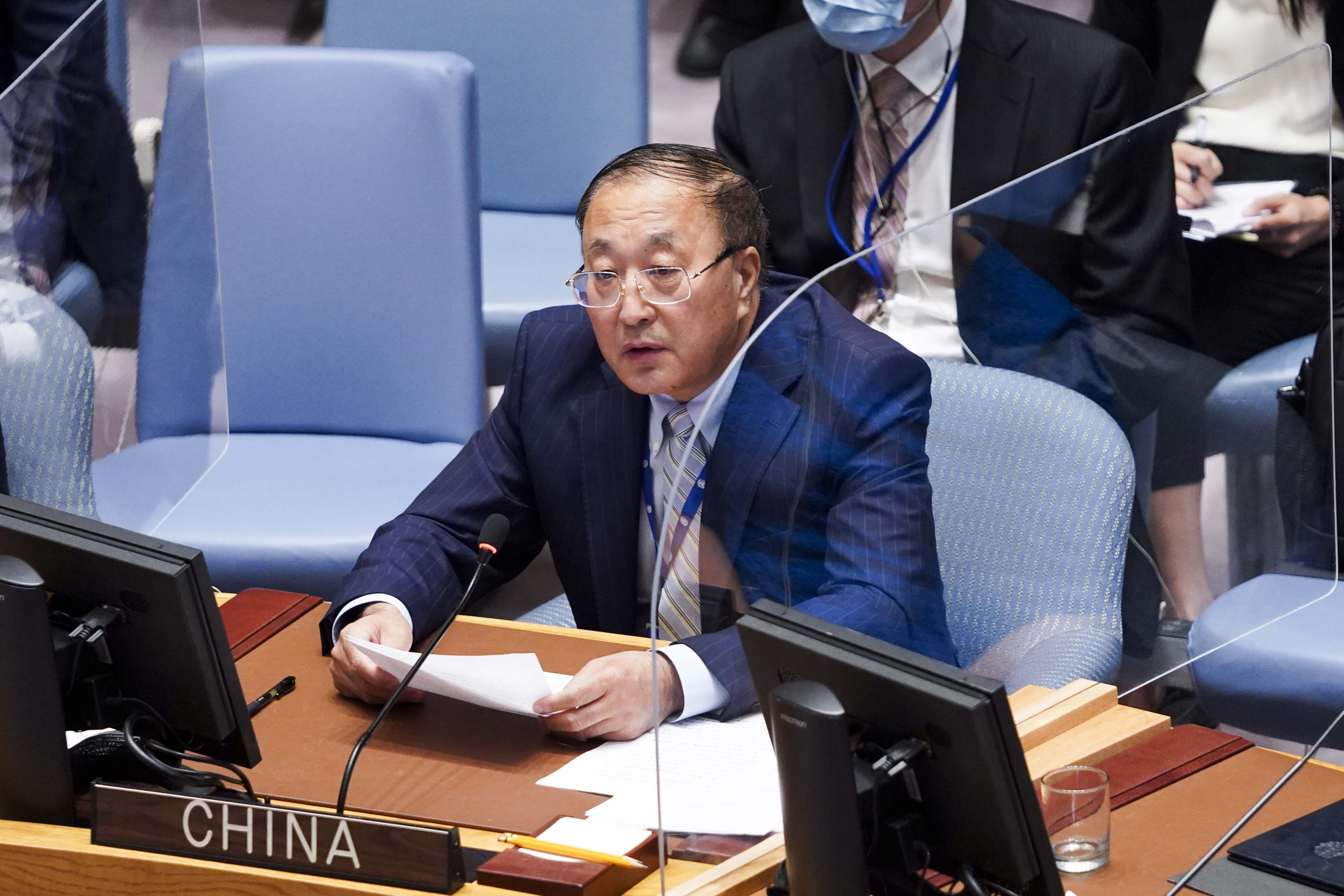| Remarks by Ambassador Zhang Jun at Security Council Open Debate on Climate and Security |
| 2021-09-23 11:00 |
|
Mr. President, China welcomes you to the chamber as you preside over today's meeting. We thank Secretary-General Guterres and Ms. Elman for their briefings. China highly commends the UN and its Secretary-General for their role in leading and coordinating the multilateral process on climate. The recent report issued by the IPCC entitled the Physical Science Basis warns us that climate change has become a real threat to the survival and development of mankind. The international community therefore must shoulder its responsibility, take actions, and work together to tackle this challenge. China supports the upcoming UNFCCC COP26 so that it can achieve fruitful outcomes and promote the comprehensive, effective, and sustained implementation of the Paris Agreement. The relationship between climate and security is very complex. The Security Council, on the basis of its mandate emanating from the UN Charter and its existing agenda, needs to get it right in terms of the manner and extent of its engagement in discussing and addressing issues related to climate and security. In this connection, I would like to make the following comments. First, it is imperative that we maintain the main channel for international cooperation on climate change. Climate change is a common challenge facing humanity, which requires a global response. The UNFCCC and the Paris Agreement is the most authoritative platform. The principle of common but differentiated responsibilities and respective capability as well as equity are the cornerstones of global climate governance. We must uphold the Convention and the Paris Agreement as the main channels, and respect the right to speak on an equal footing by all countries on climate change issues. It would be inappropriate for the Security Council, as a forum, to replace the collective decision-making by the international community. Second, it is essential for developed countries to earnestly fulfill their international obligations and commitments. Developed countries bear historical responsibility for climate change. In discussing climate change, regardless of the platform or angle, we should not lose sight of this very basic fact. Developed countries cannot always lock their sight on others. They must take concrete actions in leading the substantial reduction of emissions, realize net zero or even negative carbon emissions at an early date while honoring their commitments on climate financing, fill as soon as possible the pre-2020 annual funding gap of 100 billion US dollars, provide a clear timetable and roadmap from 2021 to 2025, and formulate a new collective quantitative funding target post 2025. In this connection, we have heard the appeals issued by many countries. We have also heard Secretary-General himself in appealing on this issue. We certainly hope that we can hear from developed countries in terms of their positive and quick response. Doing so will allow early achievement of net zero target. The international community not only needs to make such an appeal, but also there is the need to establish an oversight mechanism so as to ensure that developed countries will live up to their commitments. Thirdly, it is necessary that the challenge of climate change be addressed in the course of sustainable development. Climate change is a byproduct of humanity's unsustainable development models. The only way out, once for all, lies in a holistic approach within the framework of sustainable development. Countries should integrate climate change response into their national development programs, aligning it with poverty eradication, employment promotion, health security and clean energy rollout for enhanced resilience to climate change. In view of the undercapacity for climate change mitigation and adaptation in countries in conflict, the Security Council may focus on climate change-induced risks on the country specific agenda items, mobilize, in light of the situation on the ground, a greater input of resources from the international community, and support the UN specialized agencies in helping countries in conflict better meet the challenge. It is worth pointing out that not all of the countries on the Council's agenda were plunged into wars or chaos because of climate change. Nor does the Council have the necessary, specialized knowledge, mechanism or tools to address climate change. We therefore must refrain from using the climate issue as the key to address all problems. We must refrain from including it in the mandate of peacekeeping operations, so as not to impact the Security Council in effectively delivering on its mandate and avoid any unnecessary overlapping of work. Mr. President, As the world's largest developing country, China has always been a contributor to global climate governance, a leader in the construction of global ecological civilization, and an implementer of the Paris Agreement. Chinese President Xi Jinping on 21 September announced in his address during the General Debate of the 76th Session of the General Assembly that China will step up support for other developing countries in developing green and low-carbon energy, and will not build any new coal-fired projects abroad. This is another important measure on our own initiative announced by President Xi to address global climate change. He announced last year that China will strive to peak CO2 emissions before 2030 and achieve carbon neutrality before 2060. This represents another of our active contribution to promote green global recovery and achieve targeted goals in addressing climate change. This demonstrates China's firm determination and practical action in building community of life for man and the nature. Mr. President, Next month, the 15th Conference of the Parties to the Convention of Biodiversity will take place in Kunming, Yunnan Province, China. Using the opportunity of COP15 of CBD, China is ready to work hand in hand with other countries around the world to make fresh contributions to global environmental governance and jointly build a clean and beautiful planet that we call home. I thank you, Mr. President, |
| |||||||||||||
| |||||||||||||
